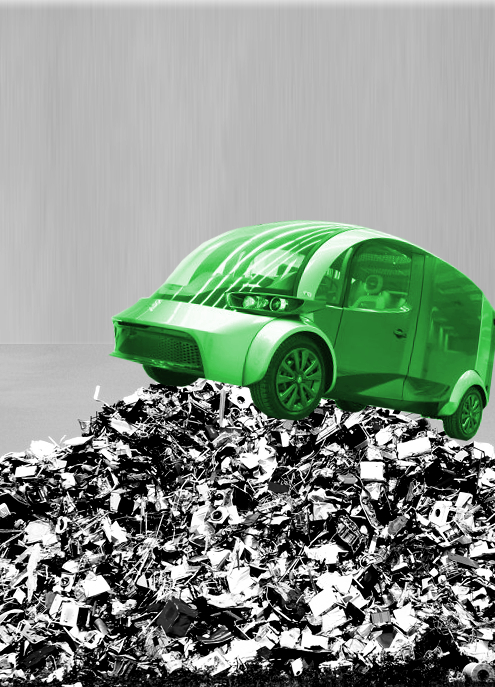Electric post vans deliver efficient future
 The chainsaw-like buzz of the classic postie bike may soon be replaced with the gentle whizzing noise of the future, as Australia Post starts its trial of electric delivery vans.
The chainsaw-like buzz of the classic postie bike may soon be replaced with the gentle whizzing noise of the future, as Australia Post starts its trial of electric delivery vans.
Australia Post has enlisted the services of French auto-maker Renault, which has provided four of its near-silent rechargeable Kangoo ZE (zero emissions) vans as part of a 12-month trial in Sydney and Melbourne.
The Kangoo runs off an electric motor which creates 44kW and 226Nm from the energy in a rechargeable battery pack.
A full charge takes between six and nine hours, and the Kangoo has a theoretical maximum range of around 170 kilometres.
Real world tests suggest the range is more like 80 to 125 kilometres.
Normally the Kangoo, which is not available in Australia, charges from a standard household wall socket and therefore is in fact powered by large grid-based fossil-fuel generating power stations.
But Australia Post’s head of environmental sustainability, Andrew Sellich, says the electricity Australia Post uses will come from government-guaranteed renewable energy sources such as wind farms.
“While at this stage we are working with Renault to prove this concept, if the vans perform well across the range of metrics we’ll be measuring them on, the future potential is very exciting,” Sellich says.
Renault Australia says the trial will be a good pilot program for them too, helping decide whether Renault should offer the car to other businesses and the wider public.
Renault and Nissan have a technical alliance that has seen them join forces on a number of electric cars such as the Kangoo ZE, Fluence ZE, Nissan Leaf hatchback and Nissan’s upcoming electrified NV200 van.
The NV200 is gunning for a spot as the next-generation taxi for cities such including New York and London.
On the more conceptual end of the scale, a striking commercial vehicle concept by US firm Liberty Electric Cars, is being hailed as project which can “reduce the environmental impact in urban areas by 40 % and thus design and construct an electric light commercial vehicle which perfectly combines the needs of inner city traffic with the advantages of electric vehicles.”
The electric van is called Deliver, it weighs 2,200 kg and has a maximum payload capacity of 700 kg.
The designers say it offers 18 per cent more cargo capacity than a conventional van on the same wheelbase, its range is said to be 100 km and top speed of about 100 km/h.
The sound (or lack thereof) of the electric delivery future can be heard in the following video.








 Print
Print